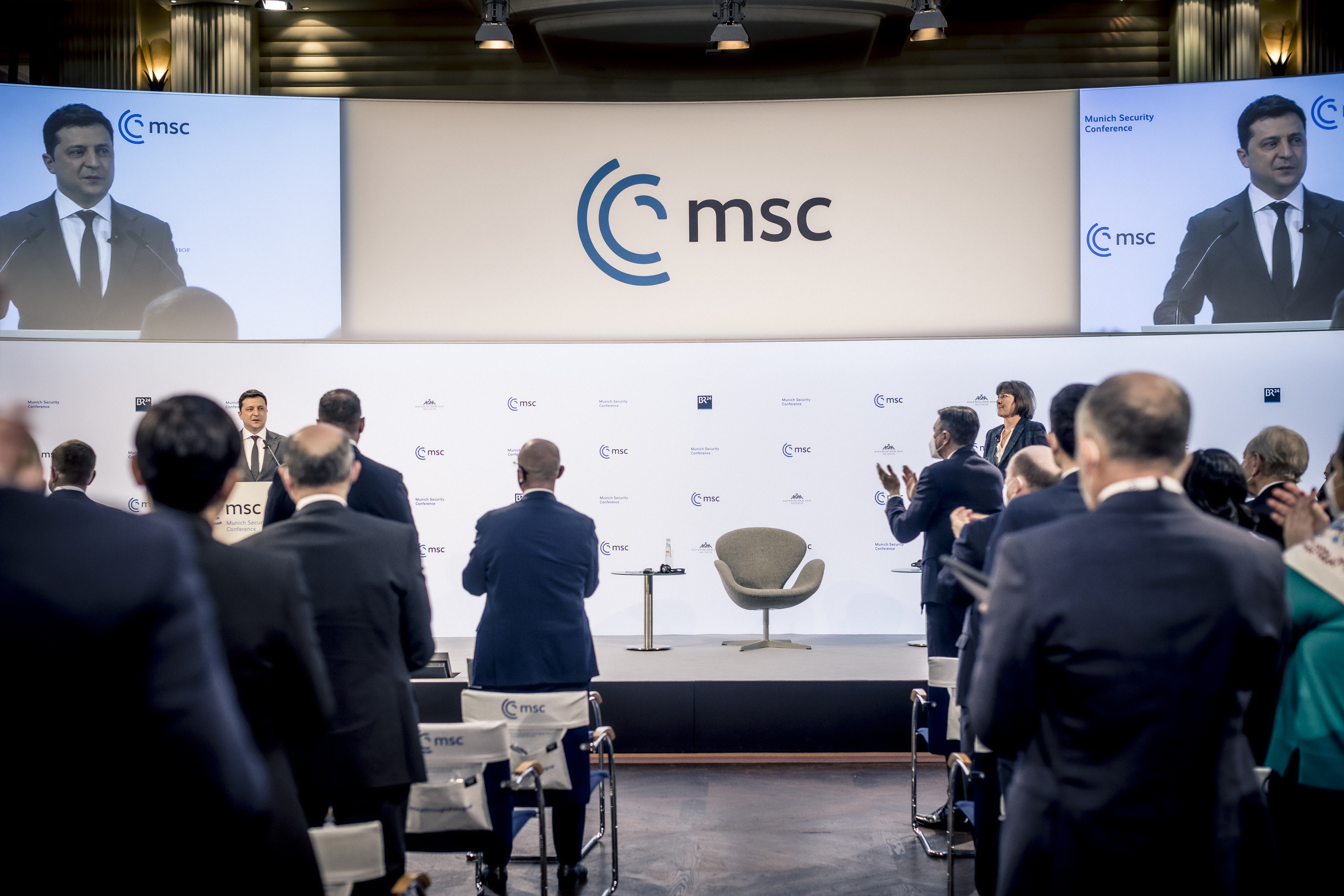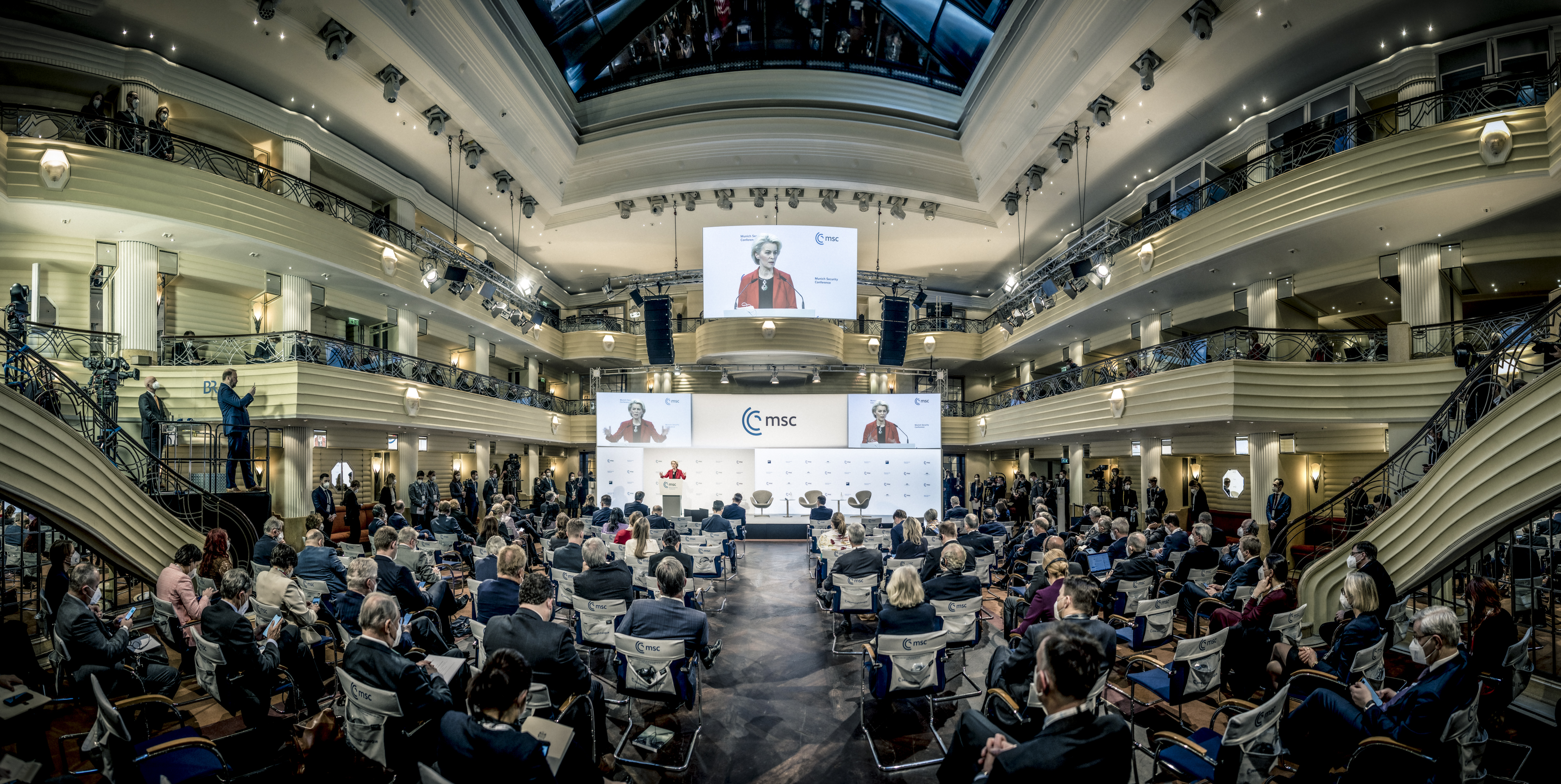Alumna Olga Klassen, in her role as Junior Project Manager, was an organiser the recent Munich Security Conference in February, platforming Kamala Harris, Jens Stoltenberg, Ursula von der Leven and Volodymyr Zelensky, just days before the Russian invasion of Ukraine. She blogs about this extraordinary opportunity.
With the onset of a global pandemic, I was extremely fortunate to land my first job at the Munich Security Conference (MSC) in the fall of 2020. While still writing my Master’s thesis for the International Joint Degree Programme “Peace and Conflict Studies”, not only did I secure a unique professional opportunity, it even was one I dreamed of since I started my undergraduate studies in Political Science. I am now a Junior Project Manager responsible for all official delegations and their respective liaison officers as well as the invitation and communication process with our participants.
The MSC is the world’s leading forum for international security policy debate, bringing together over 500 senior decision-makers from around the world, including heads of state, ministers, and high-ranking representatives of NGOs, industry, academia, and civil society. Its objective is to contribute to the peaceful resolution of conflicts by sustaining a curated and informal dialogue. I was surprised at how young and dynamic the team is that stands behind the organization of what is one of the most important political events globally.
When I started working in the Project Management Department, I was still finishing up my Master’s Thesis on the topic of Securitization of Russian “Compatriots” in the Ukraine Conflict. Little did I know that not even two years later, this conflict would escalate into a full invasion of Ukraine by Russian forces.
We felt that it was a bad omen when for the first time in decades, the Russian delegation decided not to attend the MSC 2022. On February 24th, only three days after the MSC wrapped up, Russian troops invaded Ukraine, elevating this year’s conference to a crucial, historical momentum for European security and international peace. Almost ironically, it was at the 2007 conference that President Putin first condemned NATO’s eastward enlargement. His infamous “Munich Speech” was an important warning that Russia’s patience with the West was coming to an end, and it foreshadowed many of the harsh realities that the world is now facing in light of Russia’s military aggression.
The looming threat of war dominated all debates at the conference. Whether it were statements by US Vice President Kamala Harris, NATO Secretary General Jens Stoltenberg, European Commission President Ursula von der Leyen, or German Chancellor Olaf Scholz: An overwhelming consensus was found in the mutual agreement that an attack against Ukraine would be an attack against the entire democratic world and the values we stand for. Transatlantic unity was palpable on the floors of the MSC’s traditional venue Hotel Bayerischer Hof in Munich. Witnessing a fiery and powerful speech by Ukraine’s President Zelensky – who he had been welcomed on the MSC-Stage with standing ovations – from the back of the conference hall made me realize that this would be one of the highlights of my career. The entire team had goosebumps when President Zelensky ended his speech with the words: “I had breakfast in the morning in Ukraine and I will have my dinner in Ukraine as well – I never leave home for long.”
Three years ago, I never would have imagined having the opportunity to actively contribute to this unique forum of diplomacy that bridges the gaps between global players and fosters peaceful dialogue. Planning and executing such a significant international summit under pandemic circumstances certainly wasn’t a walk in the park. In face of the Omicron wave, we were unsure whether we could actually hold the conference until late January. Despite all challenges, the MSC 2022 has been a great success and we hope to see next year’s MSC take place in times where dialogue is possible, hopefully enabling peace.
Olga Klassen is an alumna of our MA Peace and Conflict Studies.



